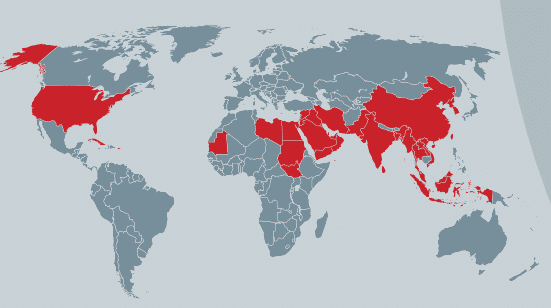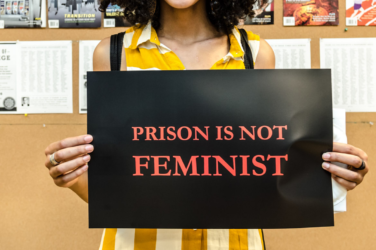Even as bloody drug wars rage in many countries, executions for drug offenses are on the wane worldwide. Still, thousands of defendants remain on death row and some governments keep execution numbers secret, according to a new report from Harm Reduction International (HRI), authored by Filter contributor Giada Girelli.
The number of recorded executions for drug offenses fell by almost 90 percent between 2015 and 2018—and from 288 to 91 between 2017 and 2018—states the report. With 35 countries holding drug offenses to be punishable by death, a total of 4,366 people were executed between 2008 and 2018—excluding numbers from China and Vietnam, where execution figures are concealed from the public.
Reforms in Iran in 2017 have had a significant impact on the global decline in executions. Additionally, Indonesia ceased all use of the death penalty, beginning in 2017 and continuing into 2018, while Malaysia committed to ending its use of the death penalty last year.
More recently, in December 2018, 121 of the 193 United Nations member states voted in favor of a moratorium on the death penalty. The United States voted against the moratorium.
Anti-drug user violence continues across the globe. State-sanctioned extrajudicial killings of people suspected of using or trading drugs continue in the Philippines under President Rodrigo Duterte, while a similar assault on people associated with drugs is happening in Bangladesh.
And the threat of an uptick in drug executions remains. HRI found that worldwide, there are still at least 7,000 people on death row for drug offenses. Most of them are in Iran, which has recently scaled back its executions.
And the number of victims of execution remains a state secret in China, which has executed thousands of people for drug-related offenses, according to an estimate by Amnesty International.
In Vietnam, where drug executions are similarly shrouded in secrecy, drug possession was punishable by death until January 2018; trafficking remains on the list of eligible offenses. According to the HRI report, the Vietnamese government reported in November 2018 that a total of 85 individuals had been executed throughout the year.
Although some progress has been made towards reducing the casualties of the global drug war, there is clearly still much to be done. Many governments—and figures including US President Donald Trump—still endorse the killing of people associated with drugs.
“If we don’t get tough on the drug dealers, we’re wasting our time. Just remember that. We’re wasting our time. And that toughness includes the death penalty,” said Trump at a gathering of law enforcement officials in March 2018. His words were met with applause.
In the HRI report’s foreword, Professor Adeeba Kamarulzaman, dean of Medicine at the University of Malaya, Malaysia, voices a sentiment in exact opposition to such murderous rhetoric. “If leaders truly want to protect their citizens and mitigate harm, they must ground drug laws in dignity, human rights and evidence.”
Image showing countries that carry out executions taken from the Harm Reduction International report





Show Comments